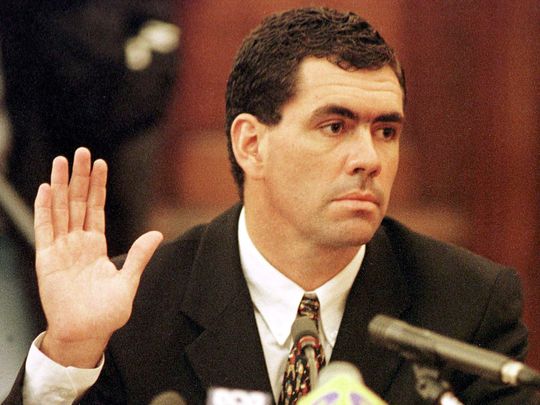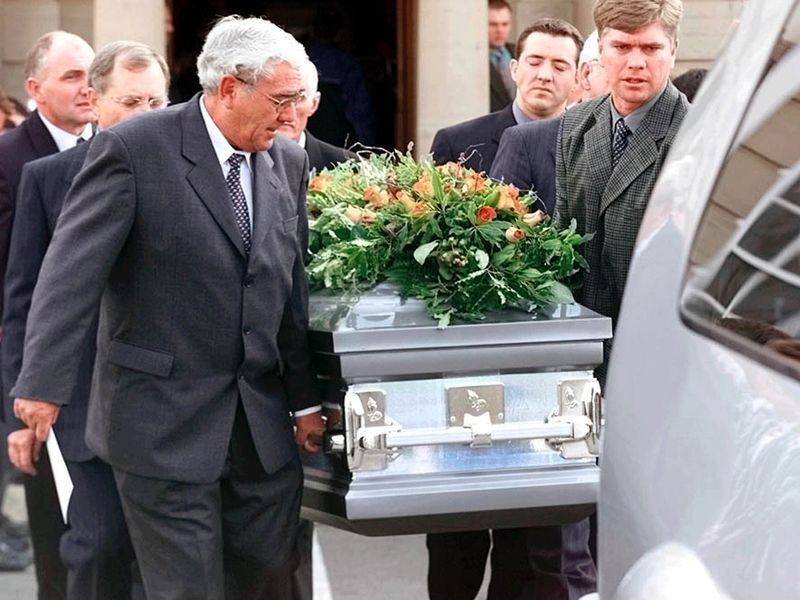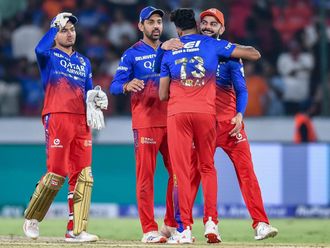
Dubai: It’s not the most memorable of anniversaries in cricket, but this April marks the 20th anniversary of the Hansie Cronje scandal - an event which tarnished the game to such a level that it’s ripples can still be felt now. A few years before that, an expose into the murky underbelly of cricket in the Indian sub-continent by a newsmagazine had created a similar uproar, but the emergence of a tragic hero in the South African skipper overshadowed the previous scandal.
Cronje, a charismatic South African leader of men whose fall from grace had all the ingredients for a surefire bestseller book or film, did just that when ‘Hansie’ - a feature film produced in South Africa by Global Creative Studios and directed by Regardt van den Bergh was released in 2008. Barely two years after his sensational disclosure of throwing a game in collusion with the bookies earned him a life ban, Cronje died in a air crash on a private plane in 2002 - perhaps completing the circle for a hero with a tragic flaw.
The first iota of suspicision arose when in January, 2000, Cronje was accused of ‘interference’ with the proper course of a Test match against England - then led by Nasser Hussain - when he convinced the latter to agree to both sides forfeiting an innings in a rain-hit Test match. England were left with a target of 249 for victory after Cronje declared and eventually won by two wickets.
However, the real shocker followed in April when New Delhi police, under the leadership of the then Delhi police commissioner Neeraj Kumar, said they had intercepted phone recordings of Cronje and an Indian bookmaker discussing pre-determined Proteas’ performances during their tour of India the previous month.

There was shock and disbelief at Cronje’s possible collusion in the episode, especially for the image of a religious sportsperson that he presented - he wore a bracelet inscribed with the words: ‘What Would Jesus Do?’
A photo of Cronje, putting his hand up as if owning up all his misdeeds, at the South African government-appointed King Commission, where he confessed to several allegations including attempts to bribe teammates Herschelle Gibbs and Henry Williams to underperform in a ODI against India - remains one of the most iconic moments of one of the darkest hours of the game.
He also admitted to receiving hundreds of thousands of dollars from bookmakers to pre-arrange certain conditions - cricket’s complexity means gambling coups are possible without ‘fixing’ the result - with his Centurion effort netting him some $6,000 and a leather jacket.
Has the game really moved on from that body blow or has new dangers staring at the face? Speaking to Gulf News in an exclusive interview, Alex Marshall, General Manager - anti-corruption of world governing body International Cricket Council (ICC) said on Monday: ‘‘The incident certainly showed that cricket was under threat and such instances could not be treated as a lighthearted sideshow where cricketers can get away by sharing information with the so-called corruptors of the game.’’

Today, a cricketer cannot claim that he is not aware of the dangers of divulging information or interacting with the bookmakers. Right from the junior level, cricketers are being sensitised and they are now more aware about the potential danger of exposing themselves to the corruptors
ICC, on their part, had introduced their anti-corruption unit under Paul Condon, former head of London’s Metropolitan Police and a anti-corruption code was put into place for the cricketers. ‘‘Today, a cricketer cannot claim that he is not aware of the dangers of divulging information or interacting with the bookmakers. Right from the junior level, cricketers are being sensitised and they are now more aware about the potnetial danger of exposing themselves to the corruptors,’’ Marshall observed.
Meanwhile, separate national hearings and investigations led to life bans for Pakistan’s Saleem Malik and India’s Mohammad Azharuddin - ending the careers of two world-class batsmen from the Indian sub-continent.
However, the shadows of corruption surfaced once again in a major way when in 2010, Britain’s now defunct News of the World tabloid exposed the willingness of Pakistan captain Salman Butt and bowlers Mohammad Asif and Mohammad Amir to engage in spot-fixing.
The rise of Twenty20 franchise leagues - and it’s poor clones around the world - have created new targets for fixers now - but then, that’s a story for another day!








